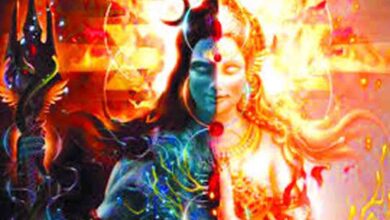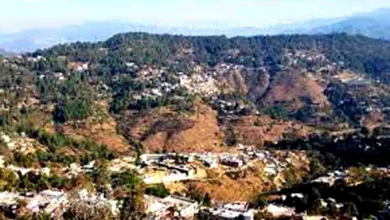After Paswan

Saturday, 10 October 2020 | Pioneer
With the Dalit leader’s death, son Chirag could either be the beneficiary of a sympathy wave or stand forlorn. Will LJP survive?
As one of the tallest Dalit leaders of a post-Mandal India, Ram Vilas Paswan may not have been able to build a national party like the Bahujan Samaj Party (BSP) or have the mobilising force of its leader Mayawati, but he had Bihar. And the unflagging loyalty of his voters, who never deserted him and returned him as their representative with record-breaking margins, trusting he would deliver. It was this solidity of command and his unchanging vote pie that helped him become the kingmaker of heartland politics, one that no party could ignore and one that he was acutely aware of to become India’s most successful bellwether politician and influencer of coalition politics. In return, he got key ministries in successive Governments of VP Singh, HD Deve Gowda, IK Gujral, AB Vajpayee, Manmohan Singh and Narendra Modi. Portfolios that he used to ensure the development of his constituents and pilot their rights. Let us not forget that as Minister he brought in a strict law to penalise atrocities against Scheduled Castes and Tribes. He realised that national politics would keep him relevant even if his voteshare was no more than seven per cent of the Bihar electorate but enough to be a swing factor for any party needing it. Not that he wasn’t aware of the limitations of being a Dalit-only leader and, therefore, included Muslims to strengthen the electoral worth of his Lok Janshakti Party (LJP). The remaining deficit was made up by his national presence that helped him make or break governments in Bihar. He was responsible for dismantling Rashtriya Janata Dal (RJD) chieftain Lalu Prasad Yadav’s hold on the State in 2005 and laid the ground for Nitish Kumar to become the Chief Minister. Committed to BR Ambedkar’s philosophy and the Lohia brand of socialism, he didn’t hesitate to stand up for what’s right and was instrumental in bringing down the Vajpayee Government over the Gujarat riots and attacks on Muslims. And at one time, he even insisted on a Muslim Chief Minister for Bihar. Yet such was his winsome personality and convincing ability that the cross-jumps he made, disregarding ideology to stay on the right side of power, seemed effortless than contrived, expedient rather than convenient. That explains why everybody may have ridiculed Nitish Kumar for jumping ship but spared Paswan. And using that advantage, he sided with the Modi regime to launch his son Chirag as a bigger player in Bihar politics. Knowing that all senior leaders were in their sunset years and grooming their younger lot, he wanted him to be chief ministerial candidate some day, something that eluded him. So he intended to chaperone him through the forthcoming Assembly elections.
Chirag has, of course, played into the BJP’s ambition of getting Bihar on its terms and, as its proxy, made no bones of his intention to undercut the prospects of Nitish Kumar’s Janata Dal (United) by fielding LJP candidates against it and playing friendly matches with the BJP while supporting the saffron party at the Centre. In fact, he has been aggressive about becoming the BJP’s B-team all too early, ceaselessly attacking Nitish, without testing strengths on the ground. One that forced the BJP to publicly restrain him by reasserting faith in Nitish as CM face, lest it be seen as a usurper of the federal space. Dalits account for 16 per cent of Bihar’s population and half of these are Paswans, a chunk that has been loyal to the LJP over the years. But Nitish, by introducing sub-quotas for Mahadalits, has chipped away at some of that base. Besides, he has roped in another Dalit leader Jiten Manjhi into his fold. But the ambitious Chirag feels that with the CM’s political stock at an all-time low, this is the best time for the LJP to shore up its base and anoint himself as a key power player. Besides, he wants to emerge as an alternative to Lalu’s son Tejashwi Yadav, who is also looking at the Assembly elections for legitimacy. Many believe that Chirag has a better appeal and acceptability among the youth in general than the arrogant Tejashwi but the latter is a bigger crowd puller. Both still rely on the aura and political legacy of their fathers to convince the voters and wouldn’t want to miss an opportunity to prove as much. Chirag, who has a largely urban persona, is handicapped by the lack of his father’s ability to feel the pulse of the underprivileged, speak their tongue and settle into their ways while campaigning. Paswan Junior, who once chased Bollywood dreams, seems that much more distant. Besides, unlike Tejashwi, who has his brothers and sisters propping up the RJD, Chirag has no family support to fall back on. And the LJP, with its heavy-duty reliance on its founding family, has hardly groomed outsiders who could emerge as his advisors. Uncle Pashupati Paras, who is the sitting Hajipur MP, is not interested in working with Chirag. And nobody knows how much he can depend on his cousins to do his bidding. So the young leader has not only lost his father’s counsel, he has lost the family mantle too. So far he has been able to fire up the LJP enough to risk it alone in the Bihar Assembly, naming candidates for 42 seats and netting in five BJP rebels too. But with Paswan passing away at a crucial transitional juncture, Chirag could plateau out and would be wise to not spread himself out too thin. Alternatively, Paswan’s death may translate into a sympathy wave among all Dalit voters, who may vote for legacy than its bearer. Either way, his political survival is at stake. The BJP will be watching him too.






